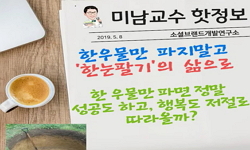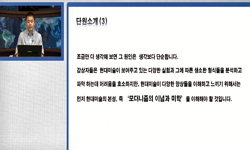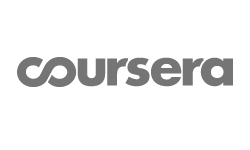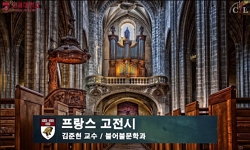한국사회는 학력 사회라고 해도 과언이 아닌 사회다. 한국사회에서 학력(學歷)은 사회를 살아가는 개인들에게 좋은 기회를 제공할 뿐만 아니라 누군가를 판단하는 척도가 되기도 한다. 즉, ...
http://chineseinput.net/에서 pinyin(병음)방식으로 중국어를 변환할 수 있습니다.
변환된 중국어를 복사하여 사용하시면 됩니다.
- 中文 을 입력하시려면 zhongwen을 입력하시고 space를누르시면됩니다.
- 北京 을 입력하시려면 beijing을 입력하시고 space를 누르시면 됩니다.
학벌과 불행: 한국청소년의 주관적 행복도 = Credentialism and Unhappiness: The Degree of Subjective Happiness of the Korean Adolescence
한글로보기https://www.riss.kr/link?id=A87020146
- 저자
- 발행기관
- 학술지명
- 권호사항
-
발행연도
2010
-
작성언어
Korean
-
주제어
학벌 ; 학벌사회 ; 사회적 압력 ; 행복도 ; 주관성 ; credentialism ; credentialist society ; social pressures ; the degree of happiness ; subjectivity
-
KDC
300
-
자료형태
학술저널
-
수록면
73-102(30쪽)
- 제공처
-
0
상세조회 -
0
다운로드
부가정보
국문 초록 (Abstract)
한국사회는 학력 사회라고 해도 과언이 아닌 사회다. 한국사회에서 학력(學歷)은 사회를 살아가는 개인들에게 좋은 기회를 제공할 뿐만 아니라 누군가를 판단하는 척도가 되기도 한다. 즉, 서로에게 사회적 압력을 강요하는 중요한 도구인 것이다. 사람들이 어떤 누군가를 만날 때 가장 먼저 질문하는 것이 그 사람이 학생인 경우 공부를 잘 하는가에서 만일 직장인이라면 어느 대학교를 졸업했나를 질문하곤 한다. 최근에는 외고를 졸업 했는가 혹은 아닌가에 대한 질문을 하게 되는 경향이 있었다. 이럴 경우 우리는 한국사회를 학력주의(學歷主義)에 근거한 학벌사회(學閥社會)라고 정의할 수 있다. 이런 사회 구조 속에서 언제나 자신의 사회 이동을 추구하도록 강요받는 개인들은 최대한 자신들에게 이익이 되는 지점을 찾아가도록 한다. 가장 최대한으로 자신의 집단을 올리기 위한 수단은 학력 취득이다. 이런 학벌 중심의 사회에서 부모는 자신들의 부를 재생산하기 위해서, 한 단계 높은 수준으로 자신들의 아이들의 수준을 높이기 위해서 자녀들에게 학력을 취득하고 좀 더 명문대, 명문대를 위한 명문고, 명문고를 위한 명문 중학교를 찾아다니도록 강요한다. 소위 외고열풍은 한국사회의 이런 특징을 잘 보여준다. 이는 부르디외의 부모의 문화적 자본이 높아질수록 자녀의 문화적 자본이 높아진다는 것이 한국의 연구들에서 나타난다. 다시 말하면, 부모의 학력이 높아질수록 자녀들의 하력도 높아짐을 알 수 있다. 방정환 재단에서 한국 어린이-청소년 행복지수의 구축과 국제 비교연구조사를 2009년, 2010년 연속적으로 실시했다. 이 연구에 따르면 경제협력개발기구(Organization for Economic Co-operation and Development 이하 OECD)국가들의 청소년들과 비교했을 때, 한국사회에서 청소년들이 비록 객관적 환경 측면에서 물질적 행복, 보건과 안전, 교육 및 가족과 친구 관계, 및 건강관련 행위 등의 항목에서도 중간 이상의 행복을 위한 좋은 조건을 가지고 있음에도 불구하고 주관적 행복지수에 있어서는 다른 경제협력개발기구 국가들의 학생들보다 보다 낮은 수치를 보여주고 있다. 이 글에서는 이런 원인을 학업 및 학교의 교육 환경에서 찾고자 한다. 한국 사회가 학벌 획득을 강요하는 사회 구조이고 이런 구조 속에서 학생 개개인들은 하력의 신장을 위해서 지속적으로 공부에 내몰리게 된다. 이때, 학생들의 부모들은 이런 것들이 자녀들의 미래 행복의 조건이라고 믿기 때문에 이런 구조 속에서 자신들의 자녀들이 스스로를 잃어버리고 소위 말하는 소외된 공부를 하도록 용인하거나 강요하게 된다.
다국어 초록 (Multilingual Abstract)
The Korean society is so-called a society of credentialism. Degree is a great and important criterion with which people are going to judge or evaluate others. Therefore, most of Koreans are pursuing the degree of some prestigious universities. This so...
The Korean society is so-called a society of credentialism. Degree is a great and important criterion with which people are going to judge or evaluate others. Therefore, most of Koreans are pursuing the degree of some prestigious universities. This social phenomenon has been built by the tradition that Koreans have tried to succeed in their society. This tradition is connected to the modern education system in Korea and has its strong impact on individuals` future of Koreans. Therefore, achieving educational degree at prestigious universities has become a means of success, which make the Koreans join in endless competition to get those prestigious degrees. Under this social structure, element, middle, and high school students are experiencing social pressures to compete with one another to achieve the educational success getting admission from only a few prestigious university. So everyday, they are studying at their schools, private tutor institutes and their homes. The subjective Indices of well-being of Korean children and students are relatively lower than ones of other Organization of Economic Cooperation and Development countries, even though their objective conditions for their well-being are not low or even higher than ones of OECD children and students, This research aims at explaining the reasons of relatively low self-reliance and well-being with social structure which makes the Korean actors join in endless competition to achieve credentials. This strong social structure makes children and students feel unhappy and not satisfied with their lives.
동일학술지(권/호) 다른 논문
-
- 연세대학교 사회발전연구소
- 다니엘벅 ( Daniel Buck )
- 2010
-
- 연세대학교 사회발전연구소
- 윌리엄헤이즈 ( William A. Hayes )
- 2010
-
명문대학에 대한 편파적 주목과 특수목적 고등학교의 과장된 효과성 간의 상관관계
- 연세대학교 사회발전연구소
- 정지원 ( Ji Won Chung )
- 2010
-
근로 동기로서 문화적 동화: 일본의 임시직 노동자들의 조직적 틀로서의 가족
- 연세대학교 사회발전연구소
- 스콧노스 ( Scott North )
- 2010





 KISS
KISS





